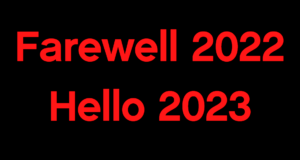In the four centuries since Shakespeare’s death, there’s been an unlikely question on every politician’s mind: What Would Shakespeare Do? With the EU Referendum looming, Samantha Simmonds takes on Europe’s enduring political fascination with the Bard in this discussion of the Legatum Institute’s recent event Shakespeare on the Road to Freedom.
As Brexit mania builds to fever pitch, the pro- and anti-EU camps are fighting over an unlikely figurehead. Forget Boris and Barack—everyone wants the support of a playwright about to celebrate the 400th anniversary of his own death.
How did European Council President Donald Tusk present his proposed terms for the UK’s continued residence in the EU? By paraphrasing Hamlet, naturally:
To be, or not to be together, that is the question… My proposal for a new settlement for #UKinEU https://t.co/w4VSmnbahQ
— Donald Tusk (@eucopresident) February 2, 2016
This invocation of the Bard, of course, was met with amusement by his detractors. Eurosceptic MEP Daniel Hannan quoted Macbeth in his quick response. ‘So much sound and fury, so little outcome,’ Hannan commented, while BBC Radio 4 presenter Mark Mardell quipped, ‘I am sure it is an unintended irony that the only person left alive to survey the tragedy [at Hamlet‘s conclusion] is young Fortinbras from Norway, a country that these days is outside the EU.’
So, given his own ballot paper, blog or Twitter account, what would Shakespeare do? And could literary and historical biographer Andrew Norman Wilson shed any light on the matter? When I was invited to the Legatum Institute to hear Wilson’s insights into the Bard’s European significance, I couldn’t wait to find out. The LI describes itself as an international think tank whose mission is to promote prosperity via the revitalisation of capitalism and democracy. Wilson was invited as part of its Roads to Freedom lecture series, giving a breakneck tour of Shakespeare’s European cheerleaders and critics that was happily free of any political agenda. Turns out today’s politicians, in attempting to shore up their own agendas with Shakespeare’s words, are sustaining a centuries-old European tradition.
Turns out today’s politicians, in attempting to shore up their own agendas with Shakespeare’s words, are sustaining a centuries-old European tradition.
Though Shakespeare’s work is packed to the gunnels with anti-continental jests and barbs, it was taken to heart by Europe’s denizens almost the second the ink was dry. (As Wilson wryly notes: ‘There is nothing like not reading Shakespeare for encouraging hero worship of Shakespeare.’) The Bard’s historical champions have since ranged from France’s revolutionary socialists to Hitler’s Nazis. Though incarnated at one point as a Communist, he was even, as recently as the late ‘80s, characterised as ‘a kind of East German secret agent: patron saint of the dissidents.’ Didn’t realise Shakespeare played a role in the fall of the Berlin Wall? Ask the East Berliners who set their 1989 production of Hamlet inside a thawing ice cube.
Just what is it that makes Shakespeare’s work so infinitely malleable, so apt to be moulded in ‘support’ of almost any given agenda, be it fascist or socialist, communist or capitalist? According to Wilson, it’s the very thing derided by his greatest detractors. Shakespeare’s most virulent critic, Leo Tolstoy, described the playwright as ‘plainly immoral’ and ‘beneath criticism’ (which is tough to reconcile with the amount of page space Tolstoy himself devoted to just such criticism). What was it that Tolstoy despised so much? In a nutshell: Shakespeare’s failure to commit to a moral or political agenda of his own.
Wilson poignantly notes that, like his most ardent champions, from Hitler’s fascists to today’s MEPs, Shakespeare lived ‘at a time of political and religious extremism, in which religious wars tore Europe apart; in which the unity and stability of Britain were threatened at all times by warring belief systems.’ The plays of his closest contemporaries are marked by these religious preoccupations, which can give them a dated feel that alienates contemporary audiences and readers. For Shakespeare, though, the universal experiences of humanity are front and centre (as well as left and right). The passions driving Shakespeare’s characters, Wilson notes—which include ‘parental love, love between the sexes or between the same sex, patriotism, power mania, magic and the sublime’—are ones that ‘surface whichever ideological insanity is gripping the world.’ Unlike his contemporaries, Shakespeare is ‘an immortal companion’ who just ‘allowed humanity to be itself.’
The passions driving Shakespeare’s characters, Wilson notes . . . are ones that “surface whichever ideological insanity is gripping the world.”
But does that make Shakespeare a socialist? Or, as one audience member demands, inherently conservative, as he immortalises only ‘what is’ rather than ‘what could be’? ‘Conservative with a small “c,”‘ Wilson agrees, after a moment’s pause. But, though Shakespeare’s histories clearly suggest a sense of nationalistic pride, his plays focus ‘so profoundly on the personality of others’ that they leave little other trace of the playwright’s own views.
In his refusal to endorse moral or political absolutes, though, perhaps Shakespeare recognises the simple fact that such rigidity is both morally and logically untenable. The human brain is programmed to crush what we psychology graduates call ‘cognitive dissonance’—in effect, shades of grey (well, at least the first 49 or so). This means that we spend most of our waking hours fighting against ambiguity and uncertainty, while simultaneously desperately seeking and clinging to conviction (however fraudulent its basis may be). It’s this desire for certainty, then, that drives our quest for meaning in the Bard’s iambic pentameter. As Wilson puts it, ‘as we stand in the rubble of our collapsed European ideologies, and as we don our crash helmets to avoid the crossfire between Islamic feuds and American involvement, [Shakespeare’s] detachment seems less like cowardice, less like cynicism, than like wisdom . . . His willingness to live with doubts . . . enables us to set out upon the road to freedom.’
 Everything Theatre Reviews, interviews and news for theatre lovers, London and beyond
Everything Theatre Reviews, interviews and news for theatre lovers, London and beyond


